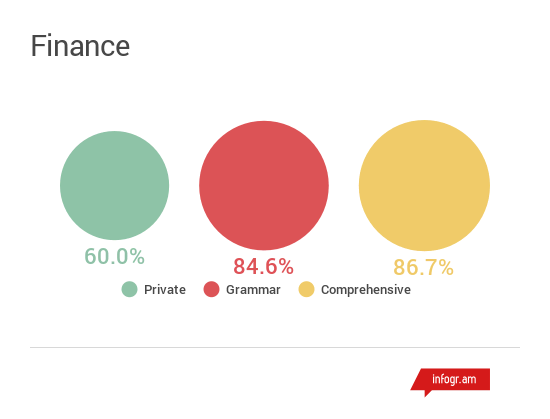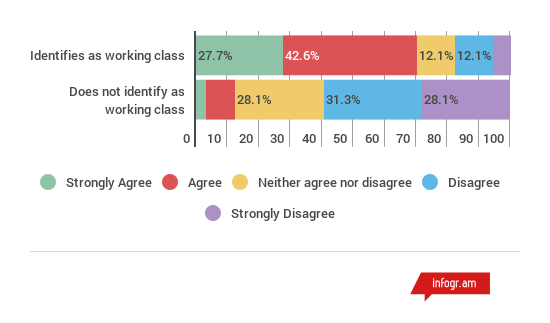It is becoming increasingly impossible for universities to justify the current level of tuition fees

It is becoming increasingly difficult for universities to justify the current level of tuition fees when evidence shows the significant impact this is having on the success of students generally and working class students in particular. If the consequences and burden of debt are deemed to outweigh the rewards, then it is time for the government and university leaders to do some serious thinking.
The recent general election provided many surprises, one of them in many ways was the prominence of higher education in the political debate, as both Labour and the Conservatives vied for power. Labour’s promise to scrap tuition fees was a part of their overwhelming success at attracting younger voters to the party. Prior to this shift, the current policy of maintaining or increasing fees, like the election result, was seen as a foregone conclusion.
The result left many shocked and universities worried. We though, were less surprised. Educating All is a student-centred programme commissioned by award winning youth leadership charity RECLAIM, that delivers solutions to academic providers to ensure that all students are able to thrive, no matter their background. When speaking to students around the country to conduct our research for the Educating All report into the barriers faced by working class students within higher education, there was a clear sense of dissatisfaction. Working class students were frustrated or, more accurately, fed up with the lack of action on social mobility and support for students from ‘non-traditional’ backgrounds, and what they often interpreted as a lack of ‘will’.
Most of our participants are the first from their families to go to university. Unique and tailored support is needed for such students. The experience of many though was that it appeared that the effort and resources put into attracting them to the university was not equaled by the support given to them whilst they were there.
This is borne out by the recent report by the Office for Fair Access showing a rise in the number of ‘disadvantaged’ students dropping out. The data shows that in 2014-15, 8.8% of young, full-time, disadvantaged undergraduates did not continue in higher education beyond their first year – up from 8.2% the year before. There is also concern over the fall in part-time entrants for the seventh consecutive year, an overall decline of 58% since 2010-11.
Our survey, completed by 200 students at twelve Russell Group universities provides some stark insights into the challenge faced by universities. The survey below shows that up to 70% of students who identify as working class viewed their class as a barrier when integrating at university. The figure when compared to those who do not identify as working is emphatically higher.

“Many times I commented on feeling isolated on my course in particular, not only with people not my colour but when I had been speaking to people who were not from a similar background. I couldn’t relate to them in many ways.” (Mechanical Engineering student, University of Sheffield)
“It definitely made my studies harder and remaining in university harder. I think many people question whether university is for them. I missed my people; I need to be amongst my people.” (Mechanical Engineering student, University of Sheffield)
“In my first year at university I felt so isolated,I felt like I wasn’t prepared. I almost dropped out of university in my first year because I felt I wasn’t prepared for this.” (Law graduate, University of Bristol)
The infographic below from our survey shows that 86.7% of state school educated students worried about finance whilst at university, compared 60% from private schools. Despite the differences in backgrounds these figures are high across the board. The incentive is their, people want to study but not at any cost. Universities, need to do more to support students beyond the point of access.
The fact that there is not a fall in the number of working class students applying to university should not mask the problems within the higher education system or dupe universities into a false sense of complacency which leads to the belief that there is not a need for action to be taken. The IFS report (Institute for Fiscal Studies) study highlights that the replacement of maintenance grants with loans in 2010 under David Cameron means that students from the poorest families could graduate with student debts in excess of £57,000 from a three-year degree. Figures from UCAS which show that university applications have fallen by 4% are evidence of that. A survey of Vice Chancellors by the Times Higher relays that one in three back Labour plans to scrap fees, perhaps an indicator that some sober assessment of current circumstances is taking place.
There is clearly a will, people still want to go study and can see the rewards going into higher education can offer, but not at any cost. Universities must offer incentives to students and ensure that the necessary support is available to students beyond the point of access. Through our extensive programmes of Research, roundtable events and focus groups, as well as training, charities like RECLAIM can support universities in doing so. Now is the time for immediate and authentic reforms with students at the heart, this election, if anything showed that students will see through half hearted attempts to address important issues like social mobility.
There was a real sense from our participants that they are not listened to, the Educating All programme, developed using the findings of our research and RECLAIM’s experience from working with young people in working class communities to develop their leadership skills, seeks to address that by putting working class students at the centre of its progragrame. Co-developed co-facilitated and co-delivered by participants. Ensuring that participants are empowered and solutions are specific, effective and organic to their needs and to the institution.
The key findings from our report very much back up this data as well also provide some context to it.
Key report findings
- Working class young people are failing to see elite universities as ‘places for them’
- Working class students tend to lack a sense of confidence and entitlement to their place at university
- Mental health support needs improvement
If the topics discussed are of interest to you contact Terry Manyeh











Responses